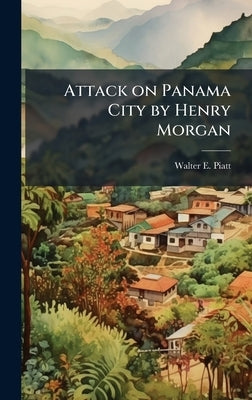Before you leave...
Take 20% off your first order
20% off
Enter the code below at checkout to get 20% off your first order
Discover summer reading lists for all ages & interests!
Find Your Next Read

This study reviews Sir Henry Morgan's attack on Panama City in 1671. Henry Morgan was successful because he applied combat power correctly. Morgan faced an enemy of superior numbers, yet he was successful. Morgan chose an objective that was thought to be unobtainable, yet he won. Morgan received no formal education in the art of war; he learned from his own experience and the experience of the pirates before him. In his last great exploit Morgan chose the famous city of Panama for his objective. This study shows how Morgan applied the elements of combat power in capturing Panama City, a city never before conquered. This study concludes by showing how the tactics of Henry Morgan are important to the military leader today. Morgan serves as an example of how to apply the elements of combat power. Morgan's use of maneuver is a text book example for young leaders to study today. Perhaps most important is Morgan's example of how leadership is vital to every military operation. The study of Morgan's leadership and how he was able to achieve what others thought could not be done is an example for all leaders.
This work has been selected by scholars as being culturally important, and is part of the knowledge base of civilization as we know it. This work was reproduced from the original artifact, and remains as true to the original work as possible. Therefore, you will see the original copyright references, library stamps (as most of these works have been housed in our most important libraries around the world), and other notations in the work.
This work is in the public domain in the United States of America, and possibly other nations. Within the United States, you may freely copy and distribute this work, as no entity (individual or corporate) has a copyright on the body of the work.
As a reproduction of a historical artifact, this work may contain missing or blurred pages, poor pictures, errant marks, etc. Scholars believe, and we concur, that this work is important enough to be preserved, reproduced, and made generally available to the public. We appreciate your support of the preservation process, and thank you for being an important part of keeping this knowledge alive and relevant.
Thanks for subscribing!
This email has been registered!
Take 20% off your first order
Enter the code below at checkout to get 20% off your first order